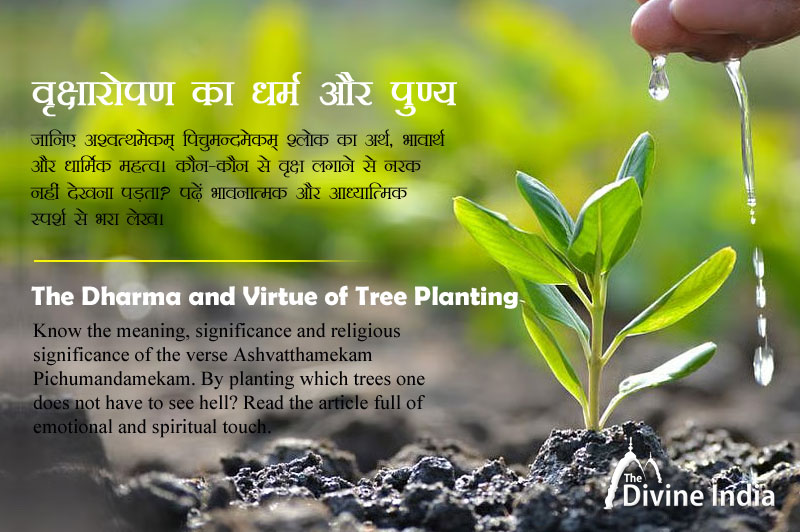


"Ashwattham ekam pichumandam ekam
Nyagrodham ekam dasha chinchhineekaan,
Kapittha-bilva-amalaka-trayam cha
Pancha amram uptva narakam na pashyeta.”
"One Ashvattha (Peepal), one Pichumand (Mahua), one Nyagrodha (Banyan), ten Chinchini (small tamarind trees),
A person who plants three Kapittha (jackfruit), Bilva (vine), and Amlaka (gooseberry) trees and five mango trees does not see hell.”
In Indian culture, tree plantation is not only considered an environmental work but also a virtuous deed. In this shloka, the sages have told that if a person plants some special trees, then he does not see hell even after life – that is, he attains salvation or divine speed.
While the environmental crisis is deepening in today's time, through this shloka, the ancient sages have given religious and spiritual height to tree plantation. This shloka is not only a religious order but also an environmental consciousness.
Think, when we plant a tree, we are not only giving greenery to the earth, but are also accumulating virtue for our next birth. A virtue that can save us from even the sad experience of hell.